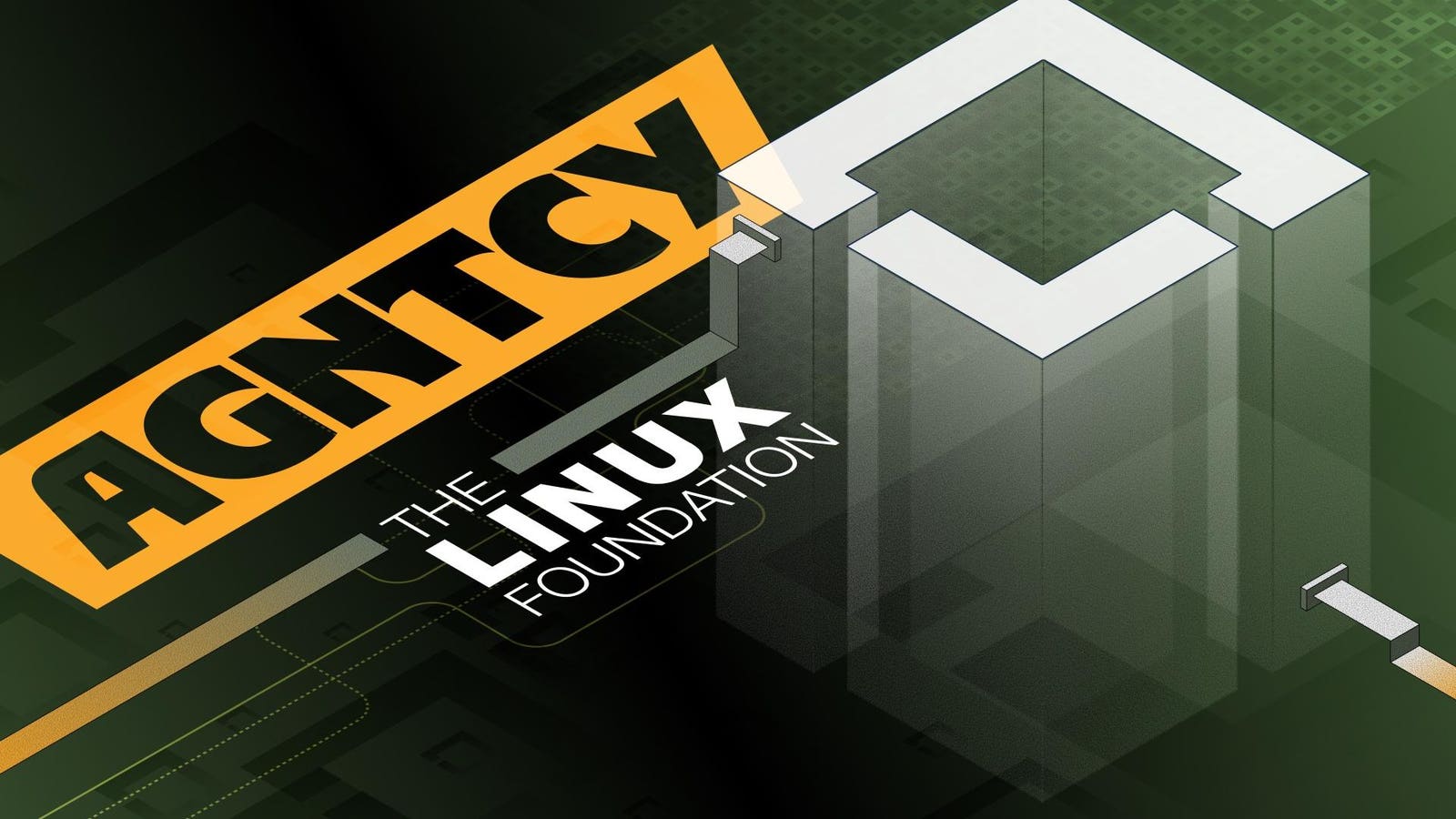The Agntcy collaborative open source project, which aims to harmonize interactions among AI agents, … More
Agentic AI promises to unlock enterprise transformation through massive improvements in the automation of workflows. The potential benefits are enormous. However, agentic workflows are a complicated engineering undertaking, to say the least. Agntcy is an open source collective formed in March 2025 with a vision for building a framework for what it calls the Internet of Agents.
Since it was founded by Cisco’s Outshift incubation unit — which then recruited other members — the collective has focused on the coordination and orchestration of agents while ensuring proper identity access management protocols as those agents access enterprise data, open-source tools and customized large and small language models. Endorsing this approach — and giving the framework firmer grounding in the industry — The Linux Foundation welcomed the Agntcy coalition to its governance model on July 29.
Agntcy’s Background — And The Importance Of Building Tech Ecosystems
Ever since agentic AI started to gain wider attention in the tech world about a year ago, it’s been clear that it could have fundamental impacts on enterprise IT transformation. It’s simple enough to understand today’s agents that take on bits of workflows more complicated than a chatbot can handle. But soon orchestration super-agents will be required to carry out larger — and more impactful — tasks such as creating fully autonomous networking infrastructure that can self-diagnose faults and heal dynamically. Or imagine a set of super-agents that can harden enterprise cybersecurity protection with dynamic, real-time adjustments made through runtime analysis. The sky’s the limit.
AI agents are highly promising for automating complex tasks to increase productivity in IT, business … More
That said, plenty of applied research is needed to unlock the innovation that agentic can enable, along with coordination efforts that bring more entities — vendors, enterprise customers, research organizations and so on — into a harmonized agentic ecosystem. Previous generations of open source attest that an ecosystem approach can advance R&D efforts rapidly, as evidenced by the impacts of open technical standards for Linux, Android and countless other open-source projects.
Agntcy’s core tenets aim to ensure openness, interoperability and scalable, secure agentic problem solving, all within a quantum-safe environment that addresses concerns about future quantum-based threats to security encryption. Besides Cisco’s in-house Outshift incubator (more on that in a minute), until this week Boomi and MongoDB were the most recognizable members of Agntcy. These more recognizable names have anchored a host of early- and late-stage startups that hope to capitalize on the agentic AI gold rush.
To me, Agntcy’s most noteworthy efforts so far are its software development kits that address the friction associated with inter-agent communication. Agntcy is also providing multi-agent sample applications that can be leveraged to accelerate developer innovation and reduce time-to-market. And a GitHub repository was recently launched to streamline access to these tools and applications.
Cisco Outshift’s Incubation Of Agntcy And Other Initiatives
I learned about Agntcy in detail several weeks ago when I attended Cisco Live and had the opportunity to spend time with the Outshift leadership team to discuss the unit’s ecosystem-focused innovation efforts. (Note: Cisco is an advisory client of my firm, Moor Insights & Strategy.) Outshift is Cisco’s in-house incubator for emerging technologies. The unit has a stated objective of focusing on emerging technologies, ideas, solutions and resources for tomorrow’s tech teams. From a research standpoint, Outshift directs its efforts into AI and machine learning, quantum networking, security and other vital subjects, often through collaboration with academic institutions from around the world.
Through Outshift, Cisco is also partnering with more than 75 tech companies, including AI tool developers, model providers and multi-agent software companies, to strengthen Agntcy and accelerate its adoption. I liken Outshift to an incubator/startup mashup with a mission of taking emerging technical concepts, scaling them into real-world solutions and doing so across a broad ecosystem. I have followed many corporate-funded technical innovation and R&D initiatives over the years, and most are inwardly focused to benefit the company itself. What is inherently different about Outshift is that it follows a partnership model by design, one that can potentially accelerate the success of the broader industry.
Outshift’s accomplishments to date with Agntcy have been impressive, especially in just the few months since the collective launched. However, when I was first briefed on it, my immediate thought was that Agntcy would benefit from broader participation by more established IT infrastructure providers. The open-source community has demonstrated that competitors can come together to advance standards and innovation, for example with the Data Plane Development Kit initiative to accelerate data packet processing across the industry.
Agntcy Graduates To The Linux Foundation
With this background in mind, Agntcy’s move to The Linux Foundation is significant for two reasons. First, it has the potential to dramatically scale and accelerate the development and adoption of Agntcy’s agentic framework. As a Linux Foundation project facilitated through working groups, Agntcy will further refine agent discovery, identity, messaging and observability. These core features are the right ones to focus on, in my opinion. One of the biggest challenges in realizing the full potential of agentic workflows will lie in identity access management and orchestration.
Second, with Agntcy’s graduation to the Linux Foundation, it is now joined by new members including Dell Technologies, Google Cloud, Oracle Cloud Infrastructure and Red Hat. From my perspective, this validates the work that Outshift has been doing, plus it marshals formidable resources to ensure Agntcy’s success.
The Future Of Agentic AI Is Bright
The promise of agentic AI is exciting. Recent solution announcements from both Cisco and Hewlett Packard Enterprise point to its potential to help us reimagine networking and security infrastructure with highly autonomous capabilities. However, concerns about proper identity access management, provisioning and agentic sprawl must be addressed to ensure unencumbered adoption. The efforts of Agntcy — backed by Cisco and now the new members and The Linux Foundation — should help agentic achieve its promise in enterprise networking and IT.
Moor Insights & Strategy provides or has provided paid services to technology companies, like all tech industry research and analyst firms. These services include research, analysis, advising, consulting, benchmarking, acquisition matchmaking and video and speaking sponsorships. Of the companies mentioned in this article, Moor Insights & Strategy currently has (or has had) a paid business relationship with Cisco, Dell Technologies, Google, HPE, IBM (Red Hat), The Linux Foundation, MongoDB and Oracle.









